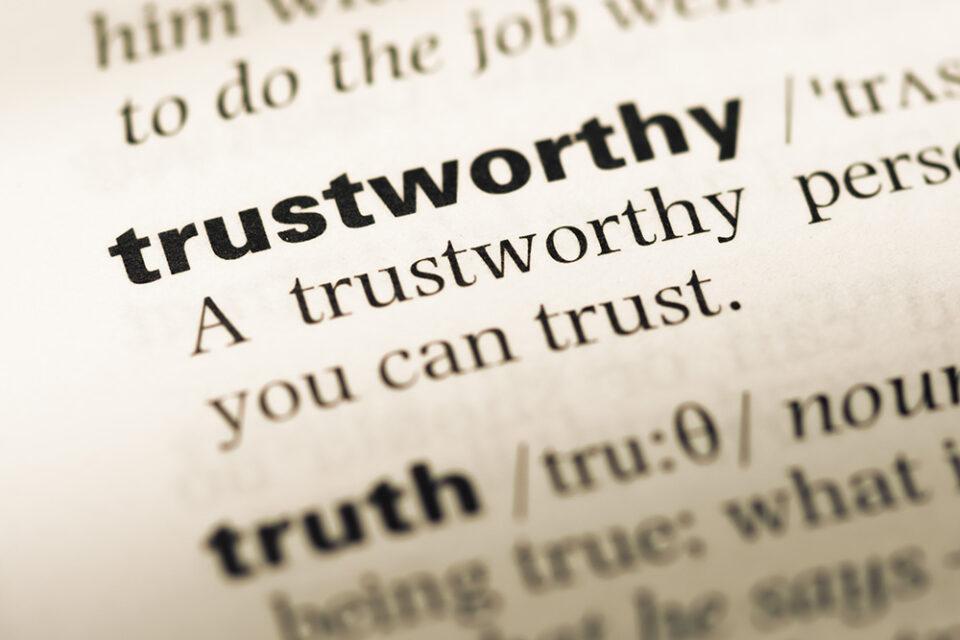We often hear or read about the importance of trust. Research is often cited that reveals how central it is for effective relationships and teams. But while it’s easy to make the connection about how important it is and to talk about trust, it is challenging to build and maintain, even if you believe you are trustworthy.
Perceptions of Your Behavior
For someone to trust you, they must believe you have integrity, are authentic, and genuinely care about them. That’s a lot. And this means others will decide if you can be trusted based on their perceptions. It doesn’t matter if you believe you have integrity, are authentic, and care. Others will decide whether these things are true, and they make those decisions as they observe and experience your behavior. Your character and personality are important, but they aren’t all that matters. Many of us behave in ways we would never suspect someone of viewing or experiencing as being inauthentic or without integrity or as uncaring.
This is a critical distinction we need to understand if we’re going to build trust. Who you are (i.e., personality) and what you do (i.e., behavior) are connected, but different. Our behavior is how our personality gets expressed, but it isn’t all we are. For one thing, behavior is a choice because it can be changed based on the situation and environment. Personality is not that kind of a choice. It doesn’t change like behavior does.
Do your behaviors impact others in a way that creates a perception you have integrity, are authentic, and genuinely care about them?
A Competitive Advantage?
Besides the impact of our behavior, another challenge to being viewed as trustworthy is the tendency to commodify values (i.e., viewing trust as an instrumental value). The authenticity required to be trustworthy cannot be created by only using techniques. Trust needs to be intrinsic for it to be real and meaningful. The difference between being a genuinely trustworthy individual versus someone who views trust as a type of competitive advantage can be subtle, but it is discernible.
Any time I see a post about an affected technique or method for creating trust with others, I cringe a bit at its ironic antithesis of what we model at Effectiveness Institute. Making behavioral choices to make a better impact is important, but these changes need to come from a place of genuine desire to build trust with others. Doubt about someone’s trustworthiness begins as soon as we sense or suspect them of lacking authenticity, and that’s all it takes to erode trust.
Do you view trust as a commodity, or something intrinsic?
Open the Windows
We also see others through our frame of reference, and none of us have clear lenses. The Blind Spot and Unknown areas of the Johari Window are real for everyone and frequently impact communication. Even if you are authentic, intrinsically value trust, and strive to make a positive impact with your behavior, there can be things you are unaware of that make it difficult for others to trust you. These are things you are unconsciously doing, or things they are consciously or subconsciously perceiving. Being open to learning about yourself and your impact tells others you want to open your Blind Spot and Unknown windows, which makes you easier to trust.
Do others believe you want to learn about yourself and the way they experience you, and to grow from this awareness?
Perfection Not Required.
The good news is perfection is not required. Anyone who is trustworthy knows they aren’t perfect, and no one else is either. But by coming from a place where trust is an intrinsic value, having an honest desire to genuinely understand someone else, and wanting to learn about yourself and grow creates a solid foundation for being trustworthy.

